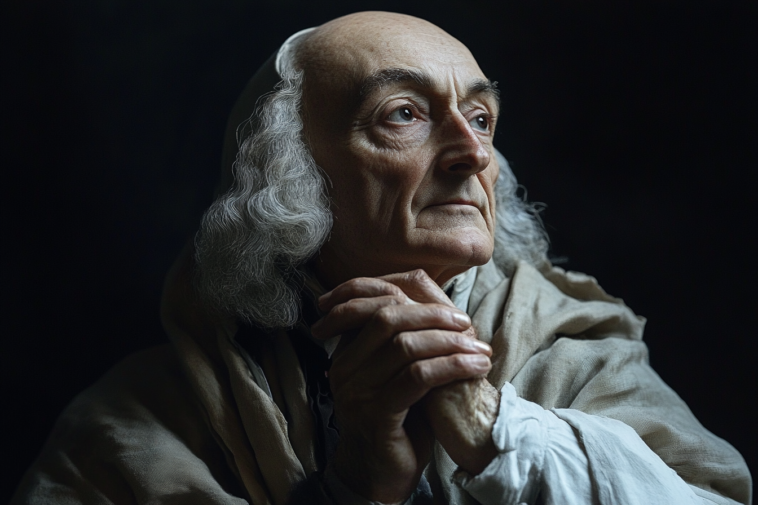
The 18th century was a transformative time in history, marked by profound intellectual, political, and scientific advancements.
It was an era shaped by Enlightenment thinkers who questioned traditional norms, political leaders who reshaped nations, and scientific figures who laid the groundwork for modern science.
This blog will explore key historical figures from this era, highlighting their contributions and lasting impact on the world.
Enlightenment Thinkers
The Enlightenment was a philosophical movement that emphasized reason, individualism, and skepticism of established institutions.
Many of the great minds of this period inspired revolutions and influenced modern thought.
John Locke
John Locke, an English philosopher, was one of the most influential figures of the Enlightenment.
His concept of the social contract, outlined in his Two Treatises of Government, argued that governments derive their power from the consent of the governed.
This idea was revolutionary, particularly in its impact on the American Revolution.
Locke’s belief in natural rights—life, liberty, and property—became the foundation for the U.S. Declaration of Independence.
Voltaire
François-Marie Arouet, known as Voltaire, was a fierce critic of the church and an advocate for freedom of speech and religious tolerance.
His wit and sharp criticism of organized religion made him both popular and controversial.
In his writings, particularly in Candide, Voltaire challenged the established social order, contributing to a cultural shift that valued human rights over religious dogma.
His famous quote, “I disapprove of what you say, but I will defend to the death your right to say it,” embodies the essence of free speech, a principle that underpins modern democratic societies.
Jean-Jacques Rousseau
Jean-Jacques Rousseau, another key Enlightenment figure, introduced the idea that society corrupts the innate goodness of man.
His Social Contract theory differed from Locke’s in that Rousseau believed that government should exist only to enforce the “general will” of the people.
Rousseau’s concept of the “noble savage” suggested that humans are inherently good but are corrupted by society.
His ideas were particularly influential during the French Revolution, which sought to overthrow established systems of power in favor of popular sovereignty.
Immanuel Kant
German philosopher Immanuel Kant revolutionized moral philosophy with his concept of the categorical imperative, which suggests that one should act in a way that their actions could be universalized.
Kant’s emphasis on ethics, reason, and autonomy set the stage for modern debates about morality and justice.
His ideas, particularly from works like Critique of Pure Reason, remain cornerstones in the study of philosophy today.
Denis Diderot
Denis Diderot was the mastermind behind the Encyclopédie, a massive work aimed at collecting and disseminating the knowledge of the time.
Diderot believed that knowledge should be accessible to everyone, not just the elite.
His work laid the foundation for modern encyclopedias and was a significant step toward democratizing knowledge.

Political Leaders
The 18th century was a time of political upheaval and change, with leaders who played key roles in shaping modern nations and political systems.
George Washington
George Washington is often called the “Father of His Country” for his leadership during the American Revolution and as the first President of the United States.
His steady hand guided the U.S. through its early, uncertain years.
Notably, Washington set a powerful example by stepping down after two terms as president, establishing a tradition of peaceful transfer of power that became central to American democracy.
Catherine the Great
Catherine the Great was a formidable ruler who expanded the Russian Empire and embraced Enlightenment ideals.
She modernized Russia’s legal system, pushed for political reforms, and vastly increased the empire’s territory.
Though some criticized her for ruling with an iron fist, Catherine is remembered as one of Russia’s greatest and most influential leaders.
Napoleon Bonaparte
Napoleon Bonaparte was one of the most influential military and political figures of the 18th century.
Rising to power after the French Revolution, he declared himself Emperor of France and expanded French influence across Europe through the Napoleonic Wars.
His legal reforms, particularly the Code Napoléon, had a lasting impact on laws worldwide and modernized the French legal system.
Benjamin Franklin
Benjamin Franklin was a central figure in the founding of the United States.
Beyond his political contributions during the American Revolution, Franklin was a polymath known for his groundbreaking scientific experiments, particularly his work with electricity.
His diplomacy was crucial in securing French support for the American cause, which played a key role in achieving independence.
King George III
King George III is often remembered as the British monarch who lost the American colonies during the Revolutionary War.
However, his reign also oversaw significant developments in Britain, including the Industrial Revolution, which transformed the nation’s economy and global influence.
Despite the loss of the colonies, George III’s era marked Britain’s rise as a dominant world power.

Scientific Revolution Figures
The 18th century also witnessed groundbreaking advancements in science, with figures who challenged traditional views and laid the foundations for modern scientific thought.
Isaac Newton
While Isaac Newton made most of his discoveries in the late 17th century, his influence continued well into the 18th century.
His groundbreaking work, Principia, introduced the laws of motion and universal gravitation, forming the core of classical physics.
Newton’s ideas not only transformed physics but also provided the framework for understanding how the universe works.
Antoine-Laurent Lavoisier
Often called the “Father of Modern Chemistry,” Antoine-Laurent Lavoisier revolutionized the field with his discoveries.
He identified the role oxygen plays in combustion and developed the law of conservation of mass, which states that matter cannot be created or destroyed.
Lavoisier’s approach to experimentation laid the foundation for modern chemistry.
Carl Linnaeus
Carl Linnaeus created the system of naming and classifying living organisms, known as binomial nomenclature.
By organizing plants and animals into categories, Linnaeus helped scientists understand the relationships between species.
His classification system, which gives every species a two-part Latin name, is still used in biology today.
Galileo Galilei
Galileo’s contributions to science, which began in the 17th century, continued to have a lasting impact in the 18th century.
He improved the telescope and made observations of planets and moons that supported the heliocentric theory—that the Earth revolves around the Sun.
His discoveries challenged centuries of belief and helped shift the way we understand our place in the universe.

Artistic and Cultural Figures
The 18th century was a rich period for culture and the arts, with influential artists, composers, and thinkers whose work continues to inspire people today.
Wolfgang Amadeus Mozart
Mozart was a child prodigy and one of the most brilliant composers in history.
His music, from symphonies to operas, has left a lasting legacy.
Works like The Magic Flute and Symphony No. 40 are still celebrated as masterpieces of classical music, known for their beauty and complexity.
Johann Sebastian Bach
Bach’s music, particularly his intricate fugues and compositions, had a huge impact on the Baroque period.
His works, such as The Well-Tempered Clavier and Brandenburg Concertos, are still studied and performed around the world.
Bach’s influence on music theory and performance remains significant even today.
William Shakespeare
Although Shakespeare passed away in the early 17th century, his plays and writings continued to shape culture in the 18th century.
Iconic works like Hamlet and Romeo and Juliet were performed regularly, and his influence on literature and drama has endured through centuries, inspiring countless writers and playwrights.
Thomas Jefferson
Best known for writing the U.S. Declaration of Independence, Thomas Jefferson was a key figure in shaping modern democratic ideals.
His vision of liberty, individual rights, and self-governance continues to influence political thought and democratic systems worldwide.
Jefferson’s contributions go beyond politics, as he was also a lover of the arts, architecture, and philosophy.
Marie Antoinette
Marie Antoinette, queen of France, became known for her lavish lifestyle and extravagant spending.
While she’s often seen as a symbol of the excesses of the French monarchy, her life ended in tragedy during the French Revolution.
Her execution marked a significant turning point in French history, symbolizing the fall of the monarchy and the rise of the French Republic.

Final Thoughts
The 18th century was a time of significant change, marked by influential people who made lasting impacts in politics, science, and the arts.
Their work laid the foundation for many of the democratic values we uphold today and led to scientific discoveries that continue to influence our modern world.



